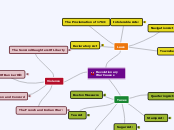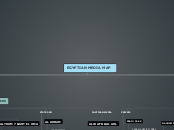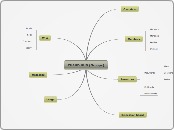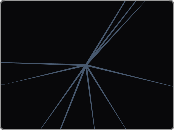Battle of Lexington and Concord
Battle of Lexington and Concord
-April 19, 1775 battle started.
-Started the American Revolutionary the War lasted until 1783.
-13 colonies and the British government didn't like each other.
-On April 18, 1775, British troops went from Boston to Concord in order to take weapons from citizens.
-Paul Revere and other riders told everyone about the troops and militiamen began to move to go find and defeat the Redcoats(British).
-British retreat.
-Colonist won their own freedom.
-British then released the Sugar Act, Stamp Act, and the Townshend Acts.
-The colonists grew mad.
-The colonists protested with “taxation without representation.”
-The Boston Massacre and the Boston Tea Party occurred.
-King shut down Bostons harbor until the colonists would pay for tea that was dumped overboard last year.
-The British then continued into Concord to search for arms, not realizing that most of them had already been relocated.
-They burned what they found.
-Militiamen on the high ground outside of Concord thought the whole town would be torched when it wasn't.
-The militiamen ran to one of Concord’s bridge's, which was being defended by British soldiers.
-The British fired first but fell back when the colonists returned the volley.
-This was the “shot heard ‘round the world”.
-Fighting started again with the militiamen firing at the British.
-British were abandoning weapons, clothing and equipment in order to retreat faster.
-When the British column reached Lexington, it ran into an entire force of Redcoats that had answered for reinforcements.
-But that did not stop the colonists from resuming their attack.
-Commander ordered them not to attack and the British were able to get safety.
Boston Massacre
Boston Massacre
-The Boston Massacre was a fight on the street that happened on March 5, 1770, between a mob of colonists wanting freedom and a squad of British Soldiers.
-They were throwing snowballs, stones, and sticks.
-Colonists were killed and this led to a campaign by speech-writers.
-"The Bloody Massacre" was a name of the engraving by Paul Revere that represented the battle. It wasn't completely accurate.
-A riot began when about 50 citizens attacked a British guard.
-A town meeting was called to discuss the removal of the British and the trial of Captain Preston and his men for murder.
-At the trial, John Adams and Josiah Quincy II defended the British which led to their release.
-Samuel Quincy and Robert Treat Paine were the attorneys for the prosecution.
-The Boston Massacre was a major event leading to the Revolutionary War.
Townshend Acts
TownShend Acts
-In 1767 made by Charles Townshend.
-Passed by the English government after the repeal of the Stamp Act.
-King was mad because of the disobedience from the colonists so he put the Townshend into act, they act was severe taxes.
-Protested against the taxes.
-The Boston merchants boycotted English goods again.
-The boycott decreased British trade, and in 1770 most of the Acts were repealed, but keeping the tea tax caused the Boston Tea Party.
Declaratory Act
Declaratory Act
-During 1766, was declaration by the British Government.
-Act was with the repeal of the Stamp Act.
-British Parliament’s taxing was the same in Great Britain.
-Parliament had directly taxed the colonies in the Sugar Act and Stamp Act.
-Parliament soothed the uncooperative colonists by taking away the taxing Stamp Act.
-Focused on the unresolved question of governments relationship to a growing empire.
-The act illustrated British to the political maturity that had developed in the American provinces during the 18th century.
Violence
Tea Act
Tea Act:
The Tea Act, passed by British government 1773.
-Allowed the British East India Company Tea a monopoly on tea costs in the colonies.
-Sons of Liberty didn't like this, the members in the night on December 16, 1773 disguised themselves as Mohawk Indians and boarded three ships in Boston Harbor.
-Destroyed over 92,000 pounds of tea.
-The Tea Act was the last hope in a series of policies and taxes that were not popular, forced by Britain.
-Opposing from colonists, start of the Boston Tea Party.
-The Tea Act had no new taxes on the colonies.
-The tax on tea had been there since 1767 Townshend Revenue Act.
-The Townshend Revenue Act taxed lead, oil, glass, paper, and paint.
-Because of protests taxes for the Revenue Act were canceled on all thing except tea(thing was 1770).
-The tea tax was kept to keep British Parliament’s right to tax.
-The Tea Act was not meant to make colonists angry, it was meant to be a policy to get the East India Company out of debt to pay back. The tea company was hurting from huge amounts of debts from annual contract payments to the British government.
-Weak due to debts from the French and Indian War and other things.
-Monopoly on tea.
The Beaver, Dartmouth, and Eleanor arrived to Boston in November to December 1773.
-The colonists, that were led by the Sons of Liberty, wanted the ships to go back to England, and didn't want the unloading of the tea.
-Thomas Hutchinson, refused to let the ships go back to England and held the three ships in the Boston Harbor until the tea was unloaded.
-December 16, 1773, 340 British East India Company Tea crates were dumped into Boston Harbor by the Sons of Liberty members.
Boston Tea Party
Boston Tea Party:
-Started December 16, 1773, around 342 chests of East India tea that belonged to British were town into the ocean.
-British were still in charge of the American colonies.
-The colonists drank tea a lot, but they had to buy it from England. -When the British government realized the had a big debt from fighting wars, Parliament decided to get money by increasing the price of tea.
-The colonists got angry because they felt this was unfair to them.
-To avoid paying the high tea prices, colonists bought tea from other countries, which was against their laws.
-The British government found out and dropped the prices of the tea back to normal prices.
-Later in that same year the British government raised prices again.
-Raised prices also on glass, lead, oil, paint and paper.
-The British eventually did lower the prices of the glass, lead, oil, paint and paper, but kept the prices of the tea high.
-Samuel Adams led a group called the Sons of Liberty.
-Included Paul Revere.
-On December 16th, the Sons of Liberty and over 5,000 patriots, gathered in Boston to fight back against the British government and protest its prices of tea.
-Almost two million dollars thrown overboard with tea costs.
-Britain was enraged.
Stamp Act:
Stamp Act:
-The Stamp Act forced a tax on the colonists, it said that legal documents and printed materials must have a tax stamp provided by commissioned distributors.
-People would collect the tax money and the colonist would get the stamp.
-You had to have stamps on wills, deeds, newspapers, pamphlets, playing cards and dice.
-Some of the money from the Stamp Act to keep peace between Native Americans and the colonists.
Quartering Act:
Quartering Act:
-Decided that some British troops should remain in North America, to protect the colonies.
-Big debt, it was crucial that the colonies pay their part of the costs.
-The act required governments to provide food and shelter any troops placed in their colony.
-If there were not enough camps, then soldiers might of been housed in inns, stables, outbuildings, uninhabited houses, or private homes that sold wine or alcohol.
-British troops were placed in a couple colonies.
The Son And Daughters Of Liberty
Daughters Of Liberty:
-Formed the British Colonies.
-Created group from unfair taxes.
-Websites say that The Daughters of Liberty could be a specific group of people or in general all woman who support patriotic causes.
-Organized and participated in boycotts.
-Joined in the boycotts with tea and prices/taxes.
-Signed something that said they won't drink any tea given to them.
-They made herbal teas that could include basil, raspberries, mint, to get around buying and drinking tea. They called the tea they made Liberty Tea.
-They took matters into there own hand.
Sons of Liberty:
-Protested the Stamp Act.
-Formed The Loyal Nine.
-Woman also joined so they formed the "Daughters of Liberty".
-Didn't keep official roster of member because they were secretive.
Battle Of Bunker Hill:
Battle Of Bunker Hill/Breed Hill:
-After the battles of Lexington and Concord in April(1775), the militiamen followed the British army to Boston.
-The British looked for protection inside the city.
-Colonists tried to build things to fortify things surrounding Boston at the north, west, and south.
-Navy force supported the British army in the city from the east. To support British defenses, they looked for a place to put defense across Boston Harbor to the north.
-Other forces knew that the British were going to send soldiers and troops into Charlestown.
-1,200 colonial troops under the command of William Prescott
-Occupied Bunker Hill on the north end of the peninsula.
-By the morning they built a strong fortification on the Hill and other forced across the area.
-The British army under control by William Howe, accompanied by Royal Navy warships, attacked the defenses.
-The British troops moved up the Hill in good battle forms. William Prescott, said to “not fire until you see the whites of their eyes.”
-The colonists left to Cambridge over Bunker Hill, leaving the British in control of Charlestown.
-The battle had showed to the British that inexperienced militia can stand up to any regular British army troops.
Intolerable Acts:
Intolerable Acts:
-Called "Coercive Acts".
-After the French and Indian War.
-Most the punishment was to Boston because they seemed to be the most hostile of the colonies.
-British passed the Boston Port Bill that closed the harbor because of the Boston Tea Party.
-Then they passed the Massachusetts Government Act, built more power to the government. They used a nonlegal law to block all the meetings in the town halls.
-Third they passed the Administration of Justice Act, trying to protect British officials that had a to pay for getting charged with capital offenses. It was during when the laws were carried out.
-Allowed them to go to another area or England in the colonies to get a trial.
-Lastly, the British thought to bring back the Quartering Act passed again after 4 years of not using it.
Navigation Act 1763:
Navigation Act:
-Laws were not used a lot for about 100 years.
-Parliament, to help pay the war debt from the French and Indian War, decided to add harsher(and more) laws more than they had in the past.
-The Navigation Acts had several more regulations than the colonist were used to.
-Products sold in the colonies from foreign nations had to go through England first.
-Tax could be collected on goods before they were shipped to the colonies.
-Warships were sent to the seas of the colonies to see any colonial sealers who wanted to disregard the laws.
The Proclamation of 1763:
The Proclamation of 1763:
-For about 150 years Native Americans had been forced off their land and had to go westward to find a new area.
-They were determined to finally stay in one spot.
-British forts and colonial settlements were attacked by the Native Americans.
-The militia battled Native Americans.
-Only after the British government made more professional forces go fight into the region, the Native Americans got defeated.
-Law also forced settlers in the region to go from their land and go back to the original 13 colonies territory.
-The Parliament controls trade with the Native Americans.
-The Parliament sent 10,000 more soldiers to help enforce the law in the colonies.
Sugar Act:
Sugar Act:
-Were taxed on sugar, coffee, indigo and molasses.
-People had to pay tax on imported foreign molasses. Had to pay six pence per gallon of molasses.
-After a while they reduced the tax on molasses. It went from six pence to three pence per gallon.
-The Sugar Act was strictly enforced. They added more items to be taxed on, including the foreign goods sugar, some wines, coffee, pimiento(a red pepper), cambric(linen/fabric) and printed calico(fabric).
The French and Indian War:
The French And Indian War:
-Around 1750 Britain and France had their people in North America.
-The British wanted to get their people to settle in the Ohio River Valley.
-The British wanted to trade with the Native Americans who lived in the Ohio River Valley.
-The French people built forts to protect their trading rights with the Native Americans.
-George Washington led a Militia against the French people. They were conquered.
-The French and British people both wanted to be in the Ohio River Valley to be able to trade and get access to the Mississippi River.
-Most American Indians were allies with the French during the war.(They liked the French because they only traded but not settled in the valley.)
-Benjamin Franklin said that all the colonies should work together to win against France.
-Each colony would have a separate government and one for all the colonies to discuss stuff.
-Franklin's idea was called the Albany Plan of Union. The colonists didn't like it. They did not want to have one government.
-Britain won the war in 1757 because they sent lots more soldiers to North America.
-Helped defeat the French in Canada.
-1763 Britain and France signed the Treaty of Paris which ended the seven year war. France let Britain control Canada and most of the land to the east of the Mississippi River.
-The Indians wanted the British to leave.
-The Indians in a war against the British. Called Pontiac’s Rebellion. British defeated the Indians in less than a year of war.
-Britain made the Proclamation of 1763.
Revolutionary War Causes
Laws
Taxes









